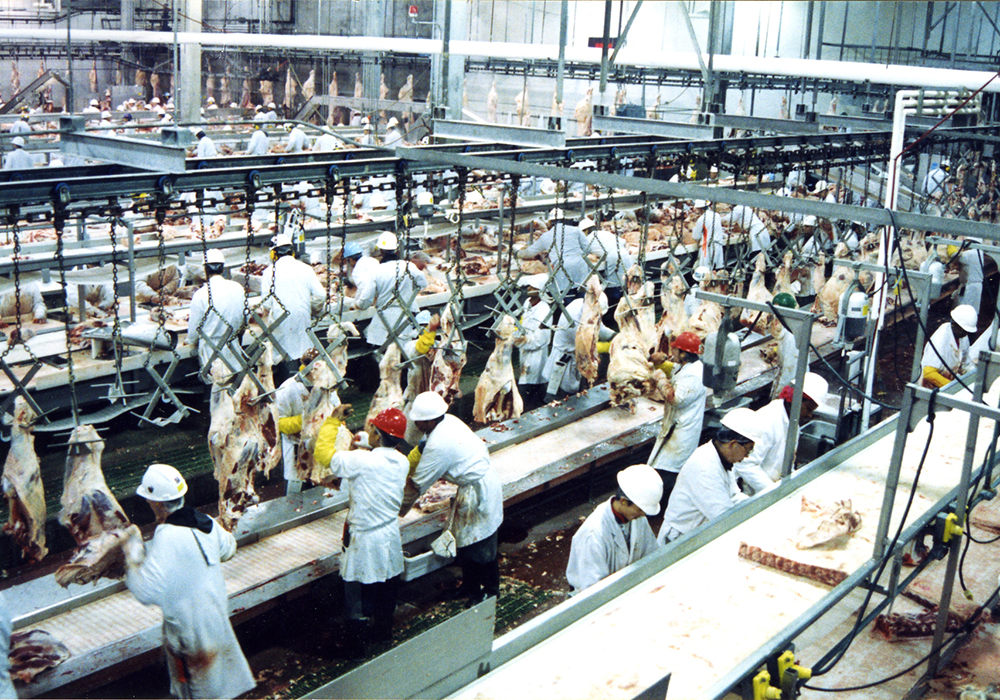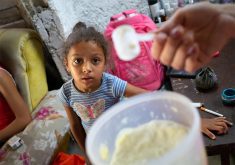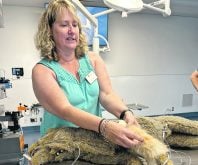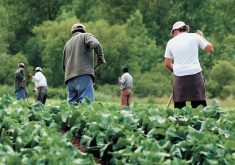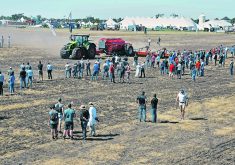As Canadians brace for a COVID-19 vaccine shortage, it remains unclear when temporary foreign workers — thousands of whom are employed in meat packing plants — will receive it.
On Jan. 15, Canada’s minister responsible for vaccine procurement, Anita Anand, said the country’s supply of the Pfizer coronavirus vaccine was experiencing a delay because the company was taking time to scale up its production capacity.
“This expansion work means that Pfizer is temporarily reducing deliveries to all countries receiving vaccine manufactured at its European facility, and that includes Canada,” said Anand.
Read Also

Farming Smarter receives financial boost from Alberta government for potato research
Farming Smarter near Lethbridge got a boost to its research equipment, thanks to the Alberta government’s increase in funding for research associations.
The delay isn’t expected to impact Canada’s long-term vaccination timeline, which aims to have everyone who wishes to be vaccinated by September. A little less than 400,000 doses have been received in Canada so far.
Close to two million more doses were originally expected to arrive in February, but that is no longer guaranteed.
Provinces are responsible for rolling out the vaccines at their own discretion, based on guidelines provided by the federal government.
According to those guidelines, people who are a high risk of dying from the virus or are “most likely to transmit COVID-19 to those at high risk of severe illness and death from COVID-19 and workers essential to maintaining the COVID-19 response” should be prioritized.
To date, there is no indication temporary foreign workers or people employed in meat packing facilities have received the vaccine anywhere in Canada.
There also appears to be few plans in place from governments to ensure they receive the vaccine.
Hundreds of employees at meat-packing plants and temporary foreign workers have tested positive for COVID-19, causing temporary shut downs at some facilities.
Manitoba and Alberta didn’t respond to questions asking about their plans to provide vaccines to temporary foreign workers; but with limited supplies, provinces are focusing on immunizing health-care workers.
Details on what the second phase of those province’s vaccine roll-out plan will look like are not available.
Saskatchewan’s government said in a statement that it is using the federal recommendations to determine who gets priority for a vaccine, but offered no specific plans for how temporary foreign workers would be vaccinated.
Quebec’s preliminary proposed order of priority groups for a vaccine lists 10 steps, but none speak specifically about temporary foreign workers. The province’s first three phases focus on vulnerable people in long-term care homes and health-care workers.
The province then plan on vaccinating people in isolated communities, elderly people and younger adults with chronic diseases before vaccinating the remaining population.
British Columbia has details for its first two phases of the vaccine rollout, but neither addresses when temporary foreign workers will receive their doses. The province’s second phase, which includes vaccines for people who are homeless or in a correctional facility, is expected to run from February to March.
Ontario has three phases for its vaccine rollout. The second phase will give vaccines to front-line essential workers, including those in the food processing industry. People in that category are expected to be included in a mass delivery of vaccines taking place from March to July.
Near the end of 2020, the Canadian Meat Council said essential meat workers need to be a priority in receiving the vaccine.
“We are urging the government to prioritize the COVID-19 vaccination for those working in the meat industry, following first-responders, health-care workers, those in long-term care facilities and other front-line workers,” CMC president Chris White said in a statement.
CMC was joined by 13 other associations supporting agri-food workers being a priority to get vaccinated.
United Food and Commercial Workers, which represents thousands of front-line workers, offered a similar sentiment.
The group said in December that after health care employees, “workers in the food retail and manufacturing, meat processing, long-term care and homecare, and security industries should be considered priority recipients as part of Canada’s COVID-19 vaccine rollout.”
In the United States, meatpacking and poultry processing workers are expected to be next in line for vaccines, according to the U.S. Centers for Disease Control advisory committee’s guidelines.
Those recommendations differ from Canada’s in that they place meatpacking workers ahead of some senior citizens and younger Americans with medical conditions that make them a high-risk of infection.
But like Canada, the federal government is only providing guidelines and U.S. states will establish their own prioritization plans.



